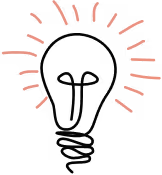Jon Berbaum has been working for Highland Solutions for the past twelve years, and was recently named Highland’s President. In this executive interview with G2 Crowd, Jon shares his thoughts on what makes Highland team members and the work we do unique.
Job titles can be confusing. What does your role entail?
My core responsibilities revolve around our culture — do we foster the environment and team members that lead to highly effective teams? — and strategy — are we aligned to what our clients need most today and will need tomorrow?
I also spend time having coffee, meeting smart and interesting leaders and firms in search of compelling new engagements and partnerships. I always enjoy connecting with people who are trying out good risky ideas, and talking to folks doing work that’s oriented towards social impact.
What is the philosophy behind your company and how does that approach differentiate your products or services in the marketplace?
Highland helps organizations innovate using a mix of design thinking, lean startup, and web/mobile software development. We’re anchored in a strong belief that organizations have increasingly less control of their marketing message and need to shift focus, energy, and investment into customer experience and innovation.
I believe the confluence of these strengths — human-centered design, business model savvy, lean startup skills, and custom software — makes us rare as a services partner.
In the end, every great services firm is differentiated by the people who do the work. Our people embody our two main values “People First” and “Give a Damn” like crazy. We care about what our clients care about, and it shows.
When your team brags about their jobs, what is the story, or stories, they are sharing?
Two things stand out.
First, people tend to brag about the actual difference their work made, not just the project itself. “We helped wish kids have a more impactful experience,” or “We’re helping attack issues of student debt,” or “We made an alternative to lines at the DMV.”
Second, our team loves to talk about learnings and pivots. “The client came to us wanting to create a program that does X, and we helped them learn that people actually cared about something else a lot more.”
We brag about the actual things we build, of course, but not nearly as much as impact and smart pivots.
Does your company engage with philanthropic opportunities? If so, why and which ones?
We give time and expertise more than the typical routes of dollars and volunteer hours. We’re involved with several high-profile not-for-profit organizations in giving strategic services, as well as in broader innovation and capabilities building for not-for-profits and social impact businesses in Chicago. We care deeply about social impact, and believe rolling up our sleeves and adding our core competencies is the most valuable way we can engage.
How do you describe your company’s internal culture? What are some examples of what makes your workplace special?
There’s a large poster of the Japanese concept of “ikigai” in our lunch and social area. “Ikigai” describes a state of being when your work is something you are good at, something you can get paid for, something you love, and something the world needs.



